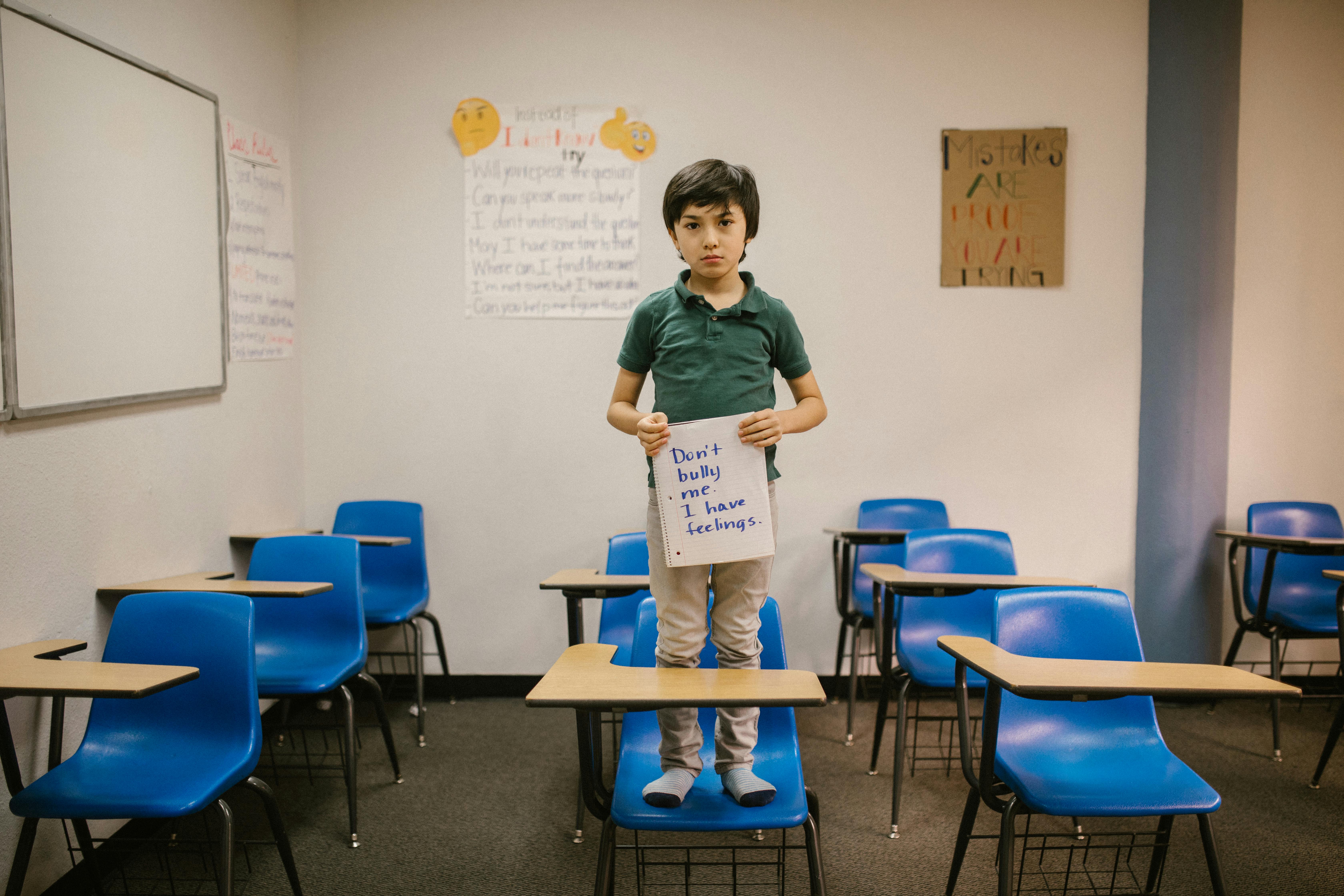
4 Best Parenting Styles Approach for Your Family; “Train up a child in the way they should go, and when they are old, they will not turn from it”.
This is a popular Biblical quote. But, have you ever wondered what that “way” looks like in practice? As parents, we’re tasked with shaping the next generation – a task that requires a lot of intentionality.
We want to give our children the best possible start in life, but how do we know which path to take? Should we be strict and authoritarian, or gentle and permissive?
The choices we make now will have a lasting impact on our children’s futures, and that’s a daunting responsibility.
That’s why in this post, we’ll delve into the different parenting styles, their pros and cons, and provide guidance on how to choose the best approach for your family.
What are Parenting Styles?
We all have our own unique approach when it comes to parenting. Some of us may be more laid-back and easy-going, while others may be more structured and disciplined.
These differences in approach are what we commonly refer to as parenting styles.
A parenting style is a set of attitudes, values, and practices that shape how we interact with our children and influence their development.
It’s the way we respond to their needs, discipline their behaviour, and show them love and affection.
Our parenting style is often shaped by our own upbringing, cultural background, and personal values, and it can have a profound impact on our children’s emotional, social, and cognitive development.
Parenting styles have evolved significantly over time, reflecting changes in societal values, cultural norms, and our understanding of child development.
In the past, authoritarian parenting was the norm, with parents often relying on strict discipline and obedience to raise their children.
However, with the rise of psychological research and a greater understanding of child development, parenting styles have become more diverse and nuanced.
Today, we recognize the importance of emotional support, communication, and empathy in shaping our children’s well-being.
Why Understanding Parenting Styles Matters
In modern society, understanding different parenting styles is crucial for several reasons.
Firstly, it allows us to recognize that there is no one-size-fits-all approach to parenting and that what works for one family may not work for another.
Secondly, it helps us to identify our own strengths and weaknesses as parents, and make intentional choices about how we want to raise our children.
Finally, it enables us to foster a more supportive and non-judgmental community, where parents can share their experiences and learn from one another.
Understanding different parenting styles can help us gain a deeper appreciation for the complexities of parenting and the many ways in which we can support our children’s growth and development.
In the following sections, we’ll explore the different parenting styles in more detail, examining their pros and cons, and providing guidance on how to choose the best approach for your family.
There are several parenting approaches but for this blog post, we will focus more on the four main parenting styles.
The Four Main Parenting Styles
Four main approaches shape how we raise our children. These styles are not mutually exclusive, and many parents adopt a combination of approaches depending on the situation.
However, understanding each style’s core principles, pros, and cons can help us make informed decisions about how we want to parent.
1. Authoritarian Parenting Style
The authoritarian parenting style is characterized by a strict, disciplined approach to raising children. Authoritarian parents often prioritize obedience, respect for authority, and adherence to rules and boundaries.
They tend to be more controlling and less nurturing, with a focus on shaping their child’s behaviour through punishment, rewards, and consequences.
Pros of Authoritarian Parenting:
1. Discipline and Responsibility: Authoritarian parents often raise children who are respectful, obedient, and responsible. This approach can help children develop self-discipline and a strong work ethic.
2. Clear Boundaries: Authoritarian parents set clear expectations and consequences, which can provide a sense of security and structure for children.
3. Academic Achievement: Children raised in authoritarian households may perform well academically, as parents often prioritize education and push their children to excel.
Cons of Authoritarian Parenting:
1. Lack of Emotional Support: Authoritarian parents may not provide enough emotional support or validation, leading to children who struggle with self-esteem, anxiety, or depression.
2. Fear-Based Compliance: Children may obey rules out of fear rather than a genuine desire to do what’s right, which can lead to rebellion or resentment later in life.
3. Limited Autonomy: Authoritarian parents may not give children enough freedom to make choices or take risks, which can hinder their ability to develop problem-solving skills and independence.
While authoritarian parenting may produce obedient children in the short term, it can have devastating long-term consequences if taken to an extreme.
Mental health issues like low self-esteem, anxiety, and depression can lead to a range of negative outcomes, including suicidal thoughts and attempts.
Desperate for validation and a sense of self-worth, these children may seek out unhealthy relationships or engage in risky behaviours, such as drug abuse, to temporarily escape their emotional pain.
They may also struggle with feelings of shame, guilt, and inadequacy, which can perpetuate a cycle of self-doubt and low self-confidence.
Furthermore, authoritarian parenting can stifle a child’s natural curiosity, creativity, and independence, leading to a lack of resilience and problem-solving skills.
As a result, these children may struggle to form healthy relationships, make informed decisions, and cope with stress and adversity. Children need a balance of discipline and emotional support to thrive.
2. Permissive Parenting Style
The permissive parenting style is characterized by a lenient and indulgent approach to raising children.
Permissive parents often prioritize their child’s happiness and freedom above all else, avoiding conflict and discipline whenever possible.
They tend to be highly nurturing and communicative but may struggle to set clear boundaries and expectations.
Pros of Permissive Parenting:
1. High Self-Esteem: Permissive parents often foster a sense of self-worth and confidence in their children, as they are encouraged to express themselves freely and make their own decisions.
2. Creativity and Independence: Permissive parents tend to give their children the freedom to explore and make choices, which can promote creativity, independence, and self-motivation.
3. Strong Relationships: Permissive parents often have strong, loving relationships with their children, built on trust, empathy, and open communication.
Cons of Permissive Parenting:
Children raised in extremely permissive households may struggle with:
1. Lack of Discipline and Responsibility: Without clear boundaries and expectations, children may fail to develop self-discipline and a sense of responsibility, leading to problems with time management, organization, and goal-setting.
2. Entitlement and Spoilage: Permissive parents may inadvertently create a sense of entitlement in their children, leading to spoiled or demanding behaviour.
3. Difficulty with Boundaries and Rules: Children raised in permissive households may struggle to understand and respect boundaries and rules, leading to problems with authority figures and social relationships.
4. Health issues: Children of permissive parents may suffer health issues like obesity and develop dental cavities as their parents readily indulge them with their food cravings.
Without clear boundaries and guidance, children may be more likely to experiment with drugs or alcohol, leading to addiction and other substance abuse problems.
Permissive parents may not teach their children effective emotional regulation strategies and this can lead to problems with anxiety, depression, and mood management.
Children raised in permissive households may also struggle to take responsibility for their actions which leads to problems with accountability and personal growth.
3. Uninvolved Parenting Style
The uninvolved parenting style is characterized by a lack of involvement and engagement in a child’s life. Uninvolved parents tend to be neglectful, distant, and unresponsive to their child’s needs.
They barely know what is going on in the child’s life and barely provide adequate care, supervision, or guidance, leaving their child to fend for themselves.
Parents may fall into the uninvolved category for various reasons, including:
1. Busy schedules: Busy professionals, entrepreneurs, or those with demanding work schedules may not have the time or energy to devote to their child’s needs.
2. Emotional unavailability: Parents who are struggling with their own emotional issues, such as depression, anxiety, or trauma, may not be able to provide emotional support and guidance to their child.
3. Lack of parenting skills: Parents who lack parenting skills or knowledge may not know how to provide adequate care and support to their children.
4. Substance abuse: Parents who are struggling with substance abuse may be physically or emotionally unavailable to their child.
Pros of Uninvolved Parenting:
1. Increased Independence: Children raised in uninvolved households may develop a sense of independence and self-reliance, as they are forced to take care of themselves.
2. Less Conflict: Uninvolved parents may avoid conflict with their children, as they are not invested in their child’s life.
Cons of Uninvolved Parenting:
Being uninvolved in the life of your child as a parenting style can have severe negative consequences for children such as:
1. Neglect and Abuse: Uninvolved parents may neglect their child’s basic needs, leading to physical and emotional harm.
2. Lack of Guidance and Support: Children raised in uninvolved households may lack guidance and support, leading to difficulties in academics, social relationships, and emotional development.
3. Emotional Distress: Uninvolved parents may cause emotional distress in their children.
4. Lack of Protection: Uninvolved parents may fail to protect their children from societal vices, such as drug abuse, gang violence, and sexual exploitation, leaving them vulnerable to harm.
5. Increased Risk of Victimization: Children raised in uninvolved households may be more likely to become victims of rape, sexual abuse, or other forms of exploitation, as they lack a safe and supportive environment at home.
6. Difficulty with Boundary Setting: Uninvolved parents may not teach their children healthy boundaries, leading to difficulties in setting limits with others and protecting themselves from harm.
4. Authoritative Parenting Style
The authoritative parenting style is characterized by a balanced approach to raising children. Authoritative parents are warm, nurturing, and communicative, yet also set clear boundaries and expectations.
They are responsive to their child’s needs but also encourage independence and self-regulation.
Pros of Authoritative Parenting:
1. Emotional Intelligence: Authoritative parents help their children develop emotional intelligence by validating their feelings and teaching them to regulate their emotions.
2. Self-Confidence and Independence: Authoritative parents encourage their children to take risks, make mistakes, and learn from them, promoting self-confidence and independence.
3. Social Competence: Children raised in authoritative households tend to have better social skills, including cooperation, empathy, and conflict resolution.
Cons of Authoritative Parenting:
While authoritative parenting is often considered the most effective style, it can also have some drawbacks:
1. Requires Effort and Consistency: Authoritative parenting requires a significant amount of time, effort, and consistency, which can be challenging for some parents.
2. May Not Be Effective in All Situations: Authoritative parenting may not be effective in situations where children require more structure and discipline, such as in cases of ADHD or ODD.
Effects of Authoritative Parenting:
Children raised in authoritative households tend to have a range of positive outcomes, including:
1. Better Academic Performance: Authoritative parents tend to have children who perform better academically, as they encourage a love of learning and provide support when needed.
2. Improved Mental Health: Children raised in authoritative households tend to have better mental health outcomes, including lower rates of anxiety and depression.
3. Stronger Relationships: Authoritative parents tend to have stronger, more positive relationships with their children, which can last a lifetime.
How to Choose the Best Parenting Style for Your Family
Before you think about how to raise a child, you should first consider how well you have trained yourself. How well do you understand your own values and goals?
Then we can think about your parenting philosophy. With these, you can make an informed decision that works best for your family.
Reflect on Your Values and Beliefs
Your personal values and beliefs play a significant role in shaping your parenting style. Align your parenting style with your values to ensure consistency and authenticity.
For example, if you value discipline, you may adopt a more authoritarian approach. On the other hand, if you prioritize emotional support, you may lean towards a more permissive style.
Some examples of values that influence parenting style include:
1. Discipline: Setting clear boundaries and consequences to promote responsibility and respect
2. Emotional support: Providing a nurturing and empathetic environment to foster emotional intelligence and well-being
3. Independence: Encouraging self-reliance and autonomy to promote confidence and self-motivation
Consider Your Child’s Needs and Temperament
Every child is unique, with their individual needs and personality. Understanding your child’s temperament and needs is crucial in determining the most effective parenting style. For instance:
- Sensitive children may require a more gentle and empathetic approach to avoid overwhelming them
- Strong-willed children may benefit from a more structured and consistent approach to help them develop self-regulation skills
Be Flexible and Adaptable
Parenting is a dynamic and ever-changing process. Being flexible and adaptable is essential in responding to your child’s evolving needs and circumstances.
This means being open to adjusting your parenting style as needed, rather than rigidly adhering to a single approach.
For example:
- During tantrums, you may need to adapt your approach to remain calm and patient, rather than resorting to punishment or discipline
- During bedtime routines, you may need to adjust your approach to accommodate your child’s changing needs and preferences
Conclusion (4 Best Parenting Styles Approach for Your Family)
We have considered the different major parenting styles, including authoritarian, permissive, authoritative, and uninvolved parenting styles.
According to experts, the authoritative parenting style is widely regarded as the most beneficial and effective approach, as it promotes healthy development and yields positive outcomes for children.
Now you can make an informed decision that aligns with their values and goals. Reflect on your values and beliefs, consider your child’s needs and temperament, and stay flexible and adaptable.
You can create a parenting style that is tailored to your family’s unique needs and promotes a strong, loving relationship with your child.





Add comment